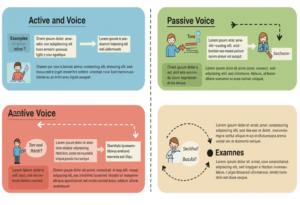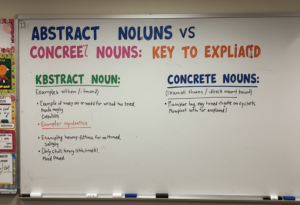How To Actually Make ANY Woman Miss You BADLY
I still remember staring at my phone three summers ago, watching the screen like it might suddenly animate itself and show me her name. Three days. That’s how long it had been since I’d heard from Sophia. We’d had what I thought was an amazing connection over dinner—laughing until the waitstaff started giving us looks, discovering we’d both spent childhood summers in the same tiny Michigan town, talking until they literally started stacking chairs around us.
But then… nothing. Radio silence.
I’d sent a casual “Had a great time” text the next morning. Then another “How’s your day?” the following evening. Then a carefully crafted “funny observation” about something we’d discussed. Each message marked as “read” with no response.
God, that feeling is awful, isn’t it? That mixture of confusion, rejection, and the slow-dawning realization that maybe—just maybe—I’d misread everything about our connection.
The thing is, I was making the exact mistake most of us make. I was trying to maintain presence when I should have been creating space for absence.
Let’s Talk About What’s Really Going On Here
You know, it’s funny—we’re rarely taught how human connection actually works. We piece it together through trial and error, through heartbreaks and moments of confusion, through misreading situations and occasionally getting it right.
I’m guessing you’re reading this because there’s someone specific on your mind. Maybe you’ve been dating her for a while and feel the connection cooling. Maybe you’ve just met her and want to keep that initial spark alive. Or maybe—and I’ve been here too—she’s pulling away and you’re desperately searching for ways to pull her back.
Whatever brought you here, I want you to take a deep breath. Because most of what we instinctively do when we want someone to miss us actually prevents them from missing us at all.
Last year, my friend Marcus called me at 1 AM, six beers deep, obsessing over why his girlfriend of three months suddenly seemed “different.”
“I’m texting her all day,” he said, his words slightly slurred. “I’m liking all her social media posts. I’m suggesting plans for every free moment she has. Why isn’t it working?”
I almost laughed, not at him, but at how familiar his approach sounded. I’d done exactly the same thing with Sophia and countless women before her.
“When was the last time you missed anyone who never gave you the chance to?” I asked him.
The line went quiet for a moment.
The Space Between Notes Makes the Music
My grandfather was a jazz pianist who played in small Chicago clubs in the 1950s. When I was learning piano as a kid (badly, I might add), he told me something I’ve never forgotten: “It’s not just the notes you play—it’s the spaces between them that make the music.”
Relationships work the same way. The spaces—the moments of absence, of wondering, of slight uncertainty—create the emotional texture that makes someone think about you when you’re not there.
Think about the last time you truly, achingly missed someone. I bet it wasn’t because they were constantly available, constantly texting, constantly present in your space. You missed them because their absence created a noticeable void—a space that only they could fill.
Last winter, I spent three weeks traveling for work. My girlfriend and I agreed to limit our communication to one meaningful call every three days rather than constant texting. By the end of the first week, she told me she’d catch herself instinctively reaching for her phone to tell me something funny or interesting multiple times a day. By the third week, our calls had gotten longer, deeper, more filled with “I wish you were here” moments.
The distance created a canvas for longing to paint itself on.
I’ve Been Getting This Wrong for Years
Let me tell you about my dating life in my mid-twenties—it was a masterclass in how NOT to create attraction. My approach? Be as available as humanly possible. Text constantly. Plan elaborate dates. Essentially, try to fill every potential moment of her time with my presence.
The results? A string of women who seemed initially interested but whose enthusiasm inevitably cooled, often right around the three-week mark. At the time, I thought I needed to do MORE—be MORE attentive, MORE available, MORE invested.
It took a particularly brutal rejection (and a painfully honest conversation with my sister) to realize I was suffocating these connections before they had the chance to breathe.
“You’re like those people who overwater plants until they drown,” my sister told me over brunch after yet another disappointment. “You’re not giving these women any reason to miss you because you never go away long enough to be missed.”
Ouch. But she was right.
What’s Actually Happening in Her Mind
Let’s talk about what’s happening psychologically when someone misses you. When you’re constantly present—whether physically or through digital communication—you become part of the background noise of someone’s life. You’re expected. Predictable. Part of the daily routine.
But when that routine presence is occasionally broken by absence, something interesting happens: you become figure rather than ground. The human mind notices change more than consistency.
I remember when my friend Rachel described missing her now-husband during their early dating phase: “It wasn’t that he disappeared or played games,” she told me over coffee. “It was that when he wasn’t around, I realized how much more interesting life was with him in it. Ordinary moments would happen, and I’d think, ‘David would appreciate this’ or ‘I can’t wait to tell David about this.'”
That’s what we’re really talking about here—becoming someone whose absence is felt because your presence adds so much value.
The Time I Completely Misunderstood This Concept
About five years ago, I read some dating advice online that suggested “pulling back” to make someone miss you. So when I met Kayla, a woman I was genuinely interested in, I decided to test this theory—badly.
After two amazing dates, I deliberately waited four days to text her back. I declined an invitation to a party I actually wanted to attend. I gave short, delayed responses to her messages.
Guess what happened? She didn’t miss me—she moved on. And rightfully so.
When we ran into each other months later and had enough drinks to be honest, she told me, “I thought you were either playing games or just not that interested. Either way, it felt bad.”
That’s when I realized there’s a world of difference between creating natural space for someone to miss you and manufacturing artificial distance. One feels healthy; the other feels manipulative.
This Isn’t About Playing Hard to Get
Let me be crystal clear: I’m not talking about playing hard to get or employing some sort of calculated strategy. I’m talking about living a life so engaging and full that your occasional absence is naturally noticed.
Last summer, I met Elena through friends. Our connection was immediate and intense—that rare feeling of “Where have you been all my life?” We started dating, and I could feel myself slipping into old patterns—wanting to text all day, planning our next date while still on the current one, essentially making her the center of my universe.
But I’d learned enough by then to catch myself. Instead of canceling plans with friends to see her, I kept them. Instead of texting throughout the day, I’d send one thoughtful message. Instead of suggesting we spend every free moment together, I made sure to maintain my regular soccer games, my writing time, my volunteer work.
The result? When we did see each other, she’d often say, “I’ve been thinking about this all day” or “I couldn’t wait to tell you about this.” She was missing me—not because I was playing games, but because I was giving our connection room to breathe.
What’s Your Life Like When She’s Not Around?
Here’s a question that changed everything for me: If the woman you’re interested in could somehow observe your life when she’s not around, would she be drawn to it?
Are you pursuing interests that energize you? Spending time with friends who value you? Working toward goals that matter to you? Or are you essentially putting your life on pause, waiting for her next text or call?
I’ll be honest—for years, my life when not dating someone was basically a holding pattern. I’d go through the motions of my day while constantly checking my phone, planning what to say next, or overthinking our last interaction. Nothing was fully experienced because everything was filtered through the lens of the relationship.
Then, after a particularly difficult breakup four years ago, I decided to build a life I actually enjoyed, regardless of my relationship status. I recommitted to writing, something I’d loved but neglected. I joined a recreational basketball league. I started taking Spanish classes. I planned a solo trip to Portugal.
Ironically, it was during this period of not actively trying to date that I met someone who became an important part of my life—attracted not by my pursuit but by the full, engaging life I was living.
The Suffocation of Digital Hyperavailability
Let’s talk about something that’s making all of this much harder: our phones. These miraculous devices that keep us constantly connected are relationship kryptonite when it comes to creating the space necessary for missing someone.
I used to be that guy—the one who would respond to a text within seconds, always. Who would double or triple text if I didn’t get a response. Who was essentially always “on call” emotionally for women I was dating.
One relationship counselor I spoke with called this “digital hyperavailability,” and she explained it creates a subtle but powerful dynamic: when you’re always instantly responsive, you signal that you have nothing more important happening in your life. Your constant availability becomes a subconscious signal about your value.
I remember when I first forced myself to put my phone away for three-hour stretches while working. It was physically uncomfortable at first—I’d literally feel phantom vibrations in my pocket. But gradually, something shifted. Not just in how women responded to me (though that changed too), but in how I experienced my own life. I was more present, more engaged, less anxious.
The Vulnerability of Wanting to Be Missed
There’s something we need to acknowledge here: wanting someone to miss you comes from a vulnerable place. It means you care. It means their attention and interest matter to you. There’s nothing wrong with that vulnerability—it’s part of being human.
When Eliza and I had been dating for about two months, she went on a week-long family vacation with no cell service. Before she left, I admitted something I’d never said to anyone: “I’m going to miss you, and I’m a little nervous about it.”
“Nervous about missing me?” she asked, looking confused.
“Nervous about whether you’ll miss me back,” I clarified, feeling my face flush with embarrassment.
She took my hand and said something I’ll never forget: “Missing someone isn’t about proximity. It’s about impact. And you’ve definitely made an impact.”
That conversation taught me something important: the fear behind wanting someone to miss you is often the fear that you haven’t made enough of an impact on their life to be missed. And the solution isn’t more presence—it’s more meaningful presence.
Creating Moments Worth Remembering
Think about your most vivid memories from past relationships. I bet they’re not of routine texts or predictable date nights. They’re moments of unexpected connection, vulnerable conversations, new experiences shared, or even productive conflicts resolved.
These peak emotional experiences create what psychologists call “flashbulb memories”—moments that imprint themselves vividly in our minds and tend to be revisited when the person is absent.
One woman I dated told me months after we broke up that she still thought about a specific conversation we’d had sitting on a harbor wall at 2 AM, talking about our childhood dreams. “It wasn’t anything dramatic,” she said. “It was just so real. I felt completely seen.”
When you’re with her, focus on creating these moments of genuine connection—being fully present, asking questions that matter, sharing authentically, creating novel experiences together. These become the mental touchpoints she returns to when you’re not around.
Finding Your Balance (I’m Still Working on This)
I’ll be the first to admit—I don’t always get this right. There are still days when I check my phone too often or feel that old anxiety creep in when someone doesn’t respond quickly. Creating healthy space while maintaining connection is an ongoing practice, not a destination.
The key is to know your own tendencies. If you’re naturally someone who tends to pursue too intensely (like me), you might need to consciously pull back a bit. If you’re someone who tends to be emotionally unavailable, you might need to push yourself to be more present and expressive.
Last year, I started keeping a “relationship journal” (which sounds way more formal than the sporadic notes app entries it actually consists of). When I notice myself falling into old patterns—either overinvesting or emotionally withdrawing—I make a note of it and try to course-correct.
What I’ve found is that the right balance isn’t static—it changes based on the relationship stage, the specific person, and what’s happening in both your lives. Early dating requires different rhythms than an established relationship. Some women appreciate more frequent communication than others. Life circumstances (work stress, family situations, health issues) affect how much connection feels good.
The key is to stay attuned and adaptive, rather than following rigid rules.
What If She Doesn’t Miss You?
Here’s a hard truth I’ve had to face more than once: sometimes, creating space doesn’t make someone miss you. Sometimes it just creates…space.
Two years ago, I was dating someone I felt incredibly connected to. When I had to travel for work for two weeks, I was secretly a little excited for the “absence makes the heart grow fonder” effect to kick in. I imagined heartfelt phone calls, counting days until reunion, maybe even a romantic airport greeting.
What I got instead were increasingly brief texts and a “we need to talk” message two days before my return. It turned out the space had clarified for her that our connection wasn’t what she was looking for long-term.
Was I devastated? Absolutely. But I also recognized that the space had simply revealed a truth that was already there. If someone doesn’t miss you when you’re gone, it’s valuable information, not a failure of strategy.
Building Something Real
At the end of the day, the art of being missed isn’t about manipulation or tactics. It’s about building a genuinely fulfilling life and inviting someone to share in it in a healthy, balanced way.
My current relationship feels different from any I’ve had before, and I think it’s because we both came into it with full lives and a clear understanding of healthy attachment. We miss each other when apart not because either of us is playing games, but because we genuinely enjoy each other’s company while respecting each other’s independence.
Last month, she went on a girls’ trip for four days. Instead of texting constantly, we shared a few highlights each day and had one longer call. When she returned, she said something that made me realize we’d found a good balance: “I had an amazing time with my friends, and I also couldn’t wait to come home to you. Both things are true.”
That’s the sweet spot—when missing someone enhances rather than diminishes your experience of the present moment.
A Final Thought From Someone Still Figuring It Out
I’m not writing this from a place of having it all figured out. I’ve made every mistake I’ve described here, sometimes repeatedly. I still occasionally find myself checking my phone too often or wondering if I should text again when I haven’t gotten a response.
But I’ve learned that authentic connection can’t be manufactured or manipulated. It grows naturally in the space between genuine self-respect and genuine interest in another person.
So as you navigate your own situation—whether you’re just starting to date someone special, trying to rekindle a cooling connection, or working to maintain a long-term relationship—remember that the goal isn’t to make her miss you through tactics or games. It’s to be someone whose presence adds so much value that your absence is naturally felt.
And perhaps most importantly, it’s to build a life that feels fulfilling and meaningful whether or not she misses you at all.
Because ultimately, the person who needs to value your presence the most is you.







